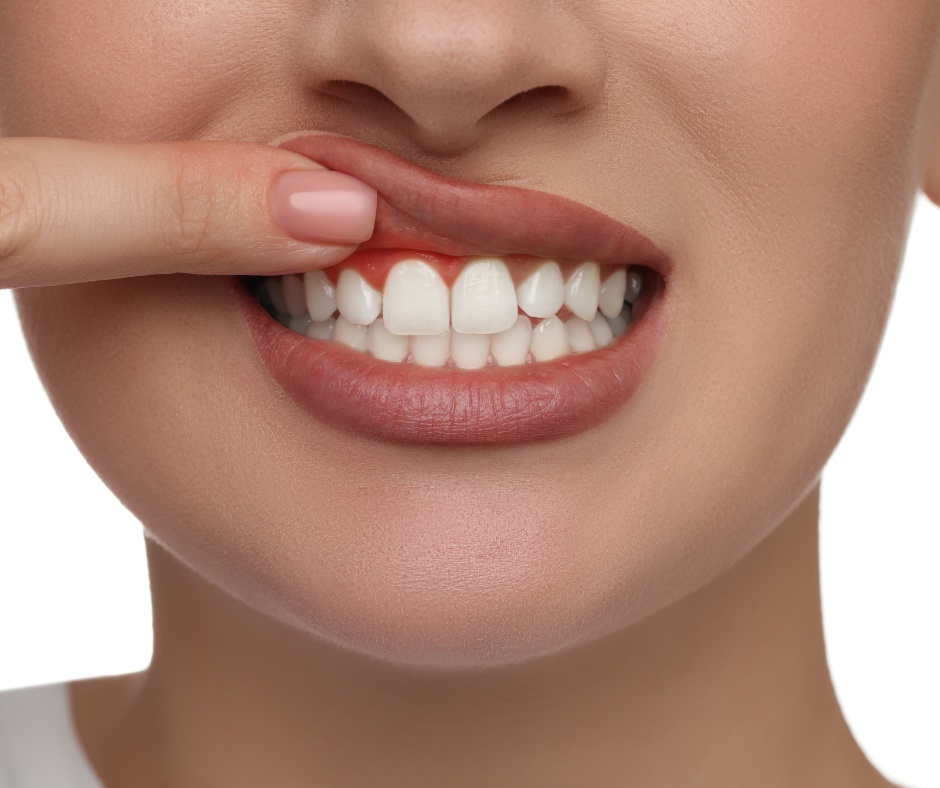While we often associate healthy gums with a vibrant pink hue, sometimes darkness creeps in, raising concerns. But before jumping to conclusions, let's explore why your gums might be darker than usual and how to navigate this change.
Natural Pigmentation:
First, not all darker gums cause alarm; just like skin and hair, gums naturally vary in colour due to melanin, the pigment responsible for skin tone. This is particularly true for individuals with naturally darker skin tones. If your gums have always been dark and haven't shown any recent changes, it's likely just inherent pigmentation.
Causes of Concern:
However, if your gums were previously pink and have recently darkened, various factors could be at play:
- Smoking: Tobacco use is notorious for discolouration, causing gums to turn brown or blackish. The nicotine and tar in cigarettes constrict blood vessels, reducing oxygen flow to the gums and leading to pigmentation changes.
- Amalgam Tattoos occur when small particles of amalgam fillings leak into the gum tissue during dental procedures, leaving permanent grey or blue-black discolourations.
- Medications: Certain medications, like minocycline (an antibiotic) and some antiseizure drugs, can cause gum pigmentation as a side effect.
- Melanotic Macules: These are harmless, flat, brown or black patches on the gums that are more common in people with darker skin tones. They typically don't require treatment unless they cause cosmetic concerns.
- Oral Lichen Planus: This autoimmune condition can cause white or lacy patches on the gums, which can sometimes appear darker due to inflammation.
- Gingivitis and Periodontitis: While inflammation in these gum diseases initially makes gums red and swollen, chronic inflammation can lead to darkening as the tissue thickens and changes composition.
Symptoms to Watch:
While pigmentation itself might not be painful, be mindful of other symptoms that could indicate an underlying issue:
- Bleeding gums
- Receding gums
- Loose teeth
- Mouth sores
- Persistent bad breath
Seeking Help:
Schedule an appointment with your dentist if you notice any changes in your gum colour, especially if accompanied by additional symptoms. They can diagnose the cause, recommend appropriate treatment, and address underlying concerns.
Keeping Your Gums Healthy:
- Maintain good oral hygiene: Brush twice daily, floss once daily, and use mouthwash as your dentist recommends.
- Regular dental checkups: Schedule regular checkups and cleanings to detect and address any issues early on.
- Quit smoking: If you smoke, quitting is crucial for overall health and improved gum health.
- Balanced diet: Eat a healthy diet rich in fruits, vegetables, and whole grains to give your gums essential nutrients.
Remember, early detection and intervention are vital in maintaining healthy gums, regardless of their natural colour. By being aware of the causes and symptoms of dark gums and practising good oral hygiene, you can keep your smile healthy and bright. For more information visit dental clinic Newcastle.


No comments yet